On December 11, 2024, the Philippine Academic Society for Climate and Disaster Resilience (PASCDR) hosted the annual summit with theme “Fostering Localized DRR: Strengthening Partnerships between Academic and Local Institutions and Communities” at the University of Santo Tomas (UST) and also online. The hybrid event brought together 130 on-site and 112 online participants from the academe, local government units and non-government organizations to advance discussions on localized disaster risk reduction and resilience-building through collaboration.

The Summit was a collaborative effort between PASCDR and the UP Resilience Institute (UPRI), in partnership with the UST SIMBAHAYAN Community Development Office, UST Campus Safety and Security Office, and UST NSTP CWTS/LTS Office.
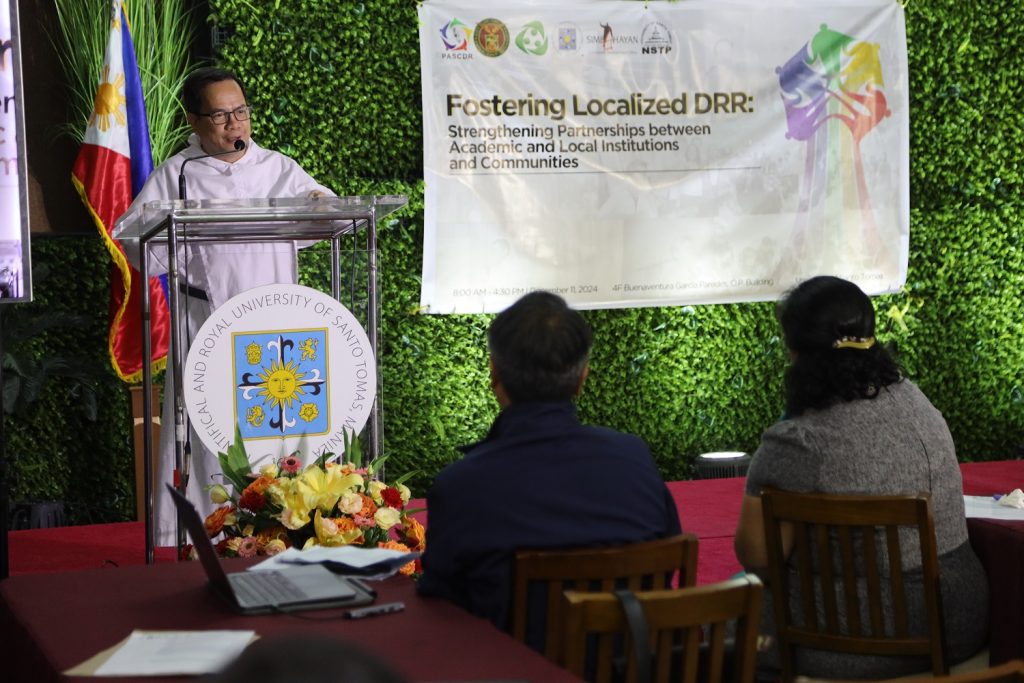
The event began with opening messages from Rev. Fr. Pablo T. Tiong, OP, Vice Rector for Religious Affairs of UST, Dr. Alfredo Mahar Francisco A. Lagmay, Executive Director of UPRI, and Dr. Emmanuel M. Luna, President of PASCDR. Their remarks emphasized the significance of fostering stronger ties between academic institutions and local communities to address disaster and climate risks effectively.
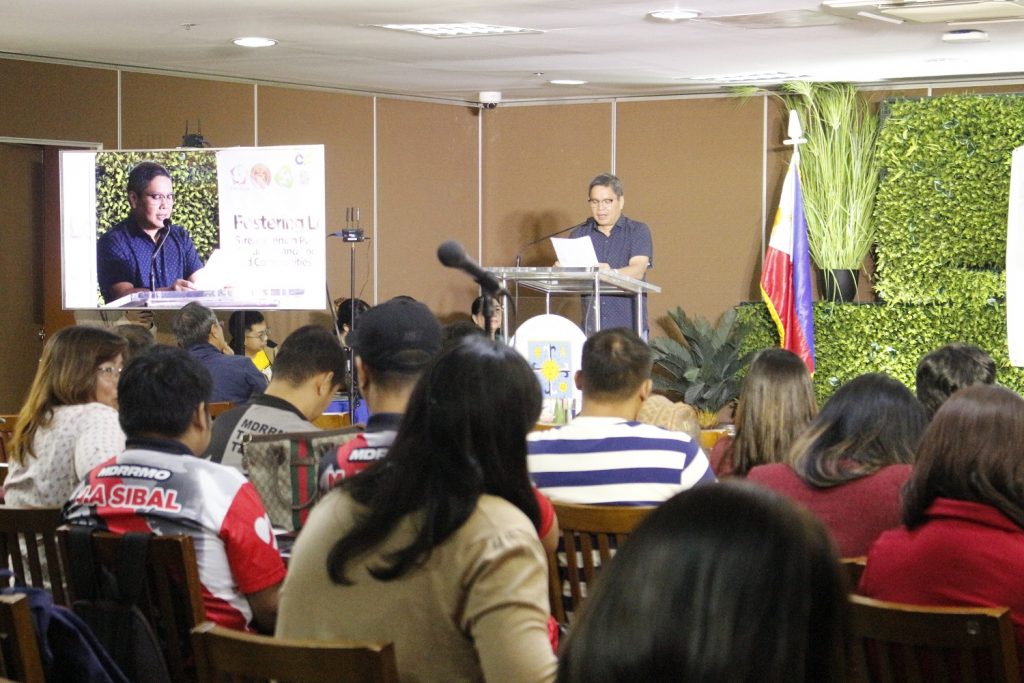
The keynote address, delivered by Mr. Naderev M. Saño, MCD, Executive Director of Greenpeace Southeast Asia, underscored the roots of disasters in the country, particularly vulnerability brought about by rampant inequality and development that marginalise communities. He emphasized how connectedness is vital for resilience and highlighted pressing environmental issues in the Philippines, including industrial pollution, forest destruction, extraction and mining, air pollution, plastic pollution, endangered habitats, and human rights concerns involving environmental defenders. Mr. Saño identified climate change as the biggest threat to the Philippines and called for both a global response and localized action. He stressed that communities are the first responders when disasters strike and that effective solutions must be rooted in local contexts.
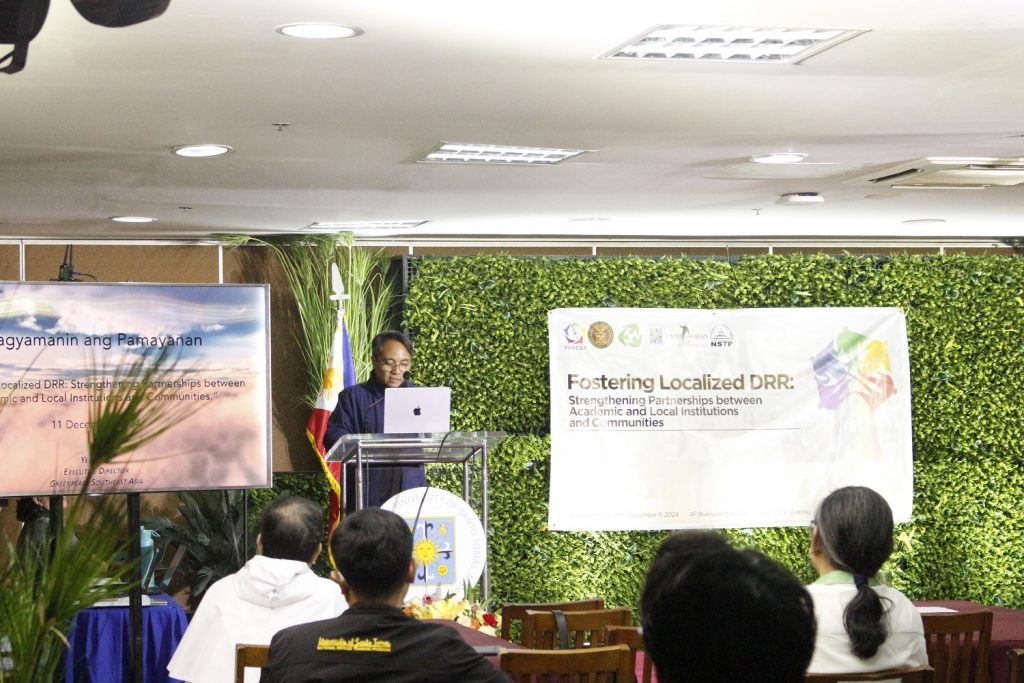
Mr. Saño called for a paradigm shift towards localized DRR and emphasised that development efforts must reduce climate risk. He also highlighted the critical role of academia in generating knowledge and innovative tools, which should be applied in communities rather than confined within university walls. He urged academic institutions to view themselves not as saviours but as partners in enhancing the resilience of local communities.
He discussed challenges and opportunities, particularly the need to bridge the gap between theory and practice. Drawing from lessons learned in Camotes Island, Mr. Saño shared the Ten “I”s for building resilient communities: institutions, investments, information sharing, intelligence, infrastructure development, interface, instruction, integration, inclusion, and implementation.
He concluded with a call to action, urging participants to listen and learn from local communities, invest in local capacity, advocate for localization, and advance collaboration between academic institutions and local communities.
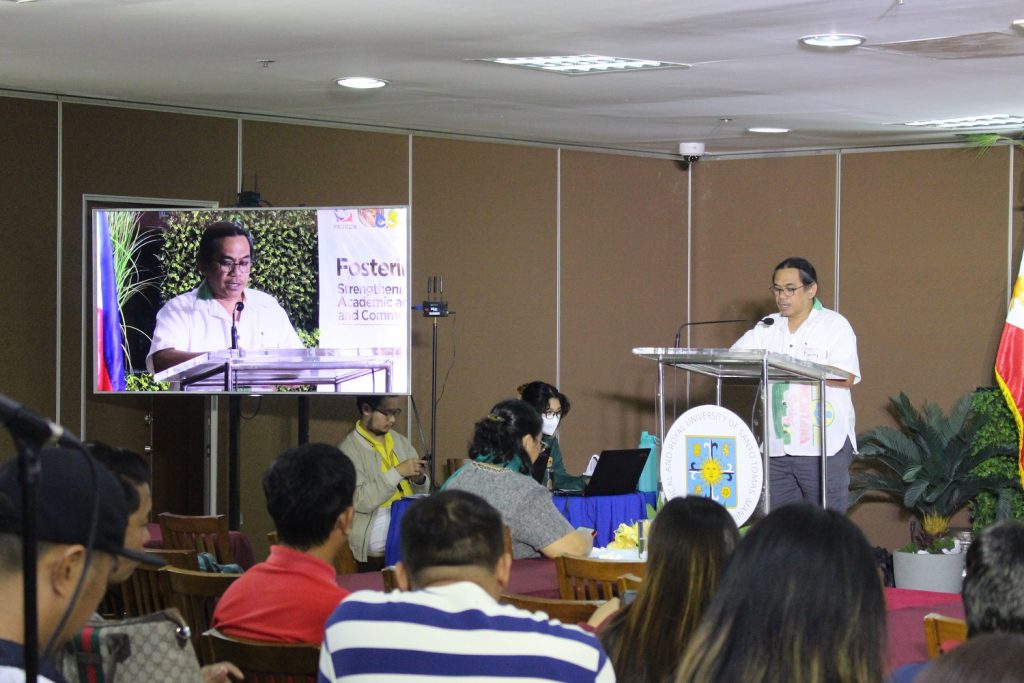
The plenary session featured two compelling presentations. Mr. Froilan A. Alipao, MCD, Director of the UST SIMBAHAYAN Community Development Office, discussed climate justice, highlighting the ethical imperatives of addressing climate change and its disproportionate impacts on marginalized populations. Meanwhile, Ms. Ma. Bianca Perez, EnP, Office-in-Charge of the Quezon City DRRMO, shared how the local government of Quezon City fosters localized DRR through academic and local partnerships, illustrating successful collaborations that enhance resilience at the grassroots level.
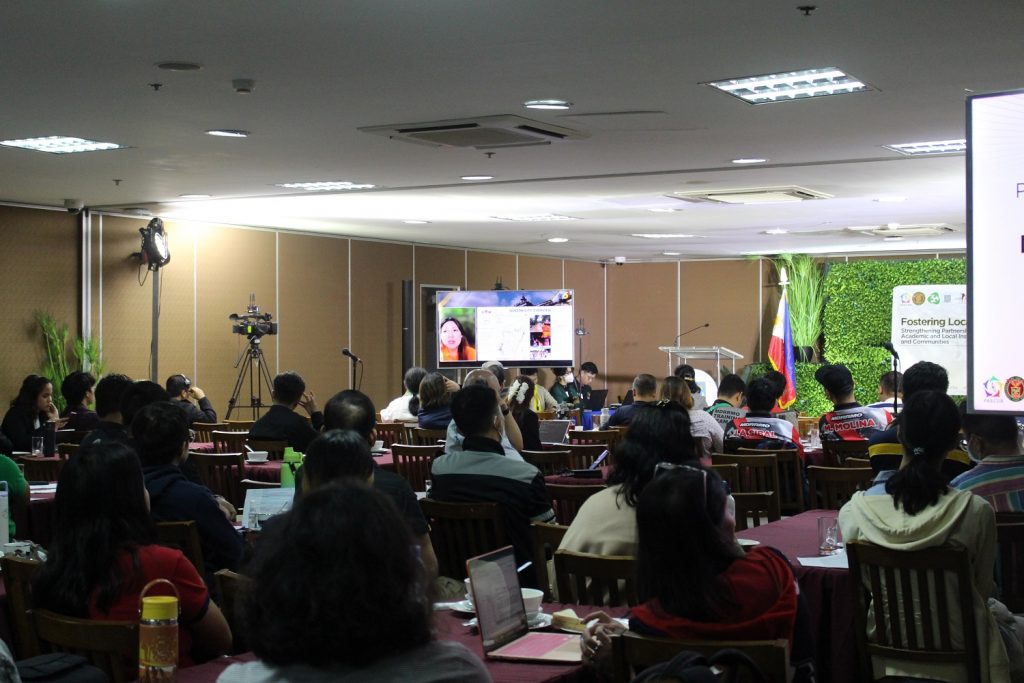
Participants engaged in dynamic discussions through four parallel roundtable sessions, each focusing on critical aspects of resilience building. The session on collaborative approaches towards safe schools, led by Dr. Juliano S. Parena, Jr., Director of UST Campus Safety and Security Office, explored strategies to ensure school safety through partnerships. The roundtable on academic and local partnerships towards resilience, facilitated by Ms. Arge Louise Joy Esquivel, EnP, Science Research Specialist II at UPRI, examined innovative ways academia can support local resilience initiatives. Another session, led by Mr. Michael Vincent Mercado, MDC, Program Manager of the Voice and Insights Lab of the Center for Disaster Preparedness Foundation, delved into the integration of resilience-building into curriculum development. Lastly, Mr. Adrian D. Romero from the UST NSTP CWTS/LTS Office facilitated a discussion on academic service initiatives aimed at empowering communities.
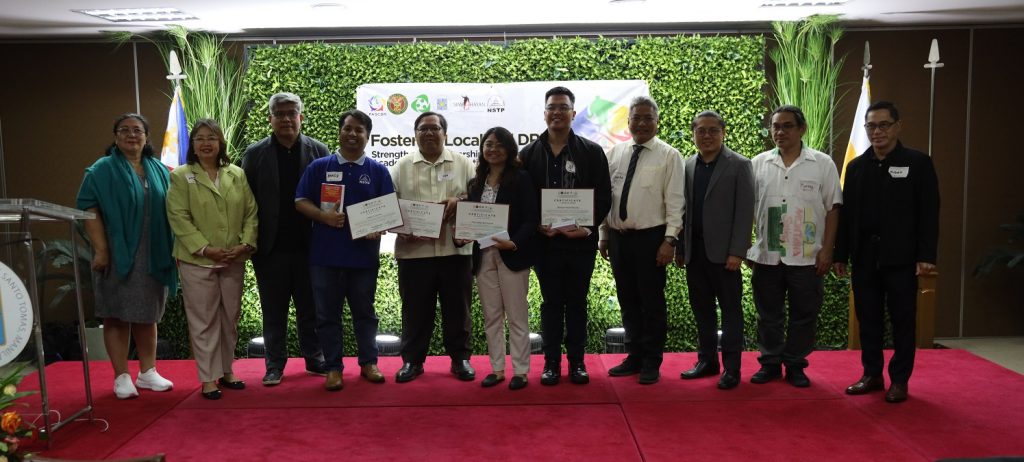
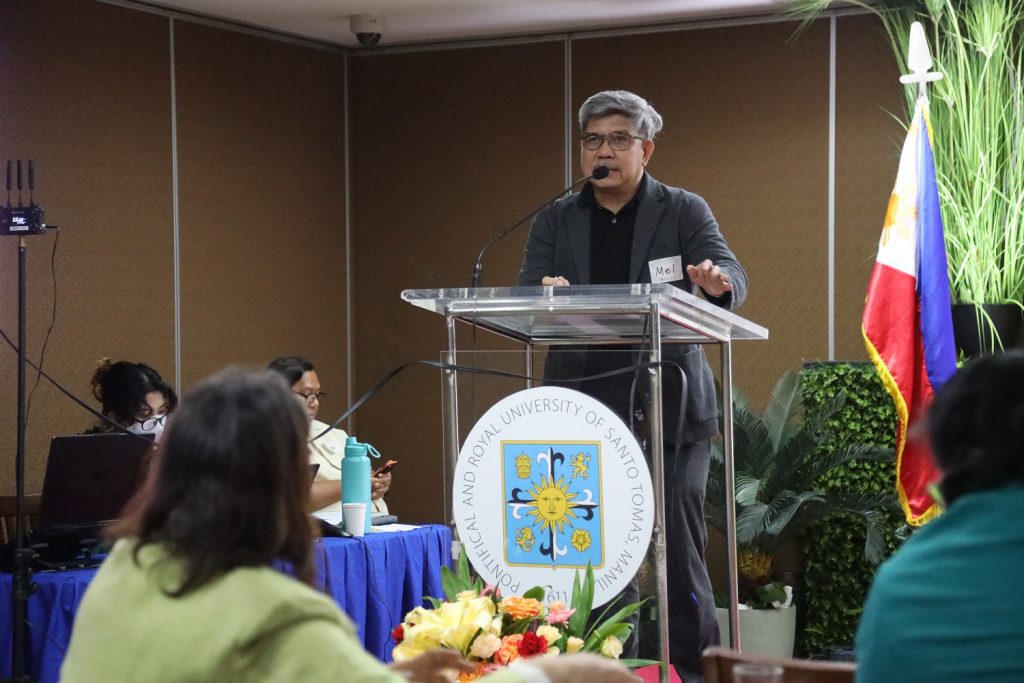
The summit ended on a high note and PASCDR reaffirmed its commitment to fostering collaboration and advancing localized disaster risk reduction efforts to build a more resilient Philippines.
Mark your calendars for October 2025! PASCDR is heading to De La Salle University (DLSU) Manila for its 3rd National Conference, in partnership with the University of the Philippines Resilience Institute (UPRI) and De La Salle University.
Don’t miss out—follow PASCDR on Facebook at https://www.facebook.com/pascdresilience for the latest updates and be part of the conference!
Interested in becoming a member or partner of PASCDR? For more details, visit https://bit.ly/pascdr. You can also reach out to the PASCDR Secretariat at secretariat@pascdr.org.
